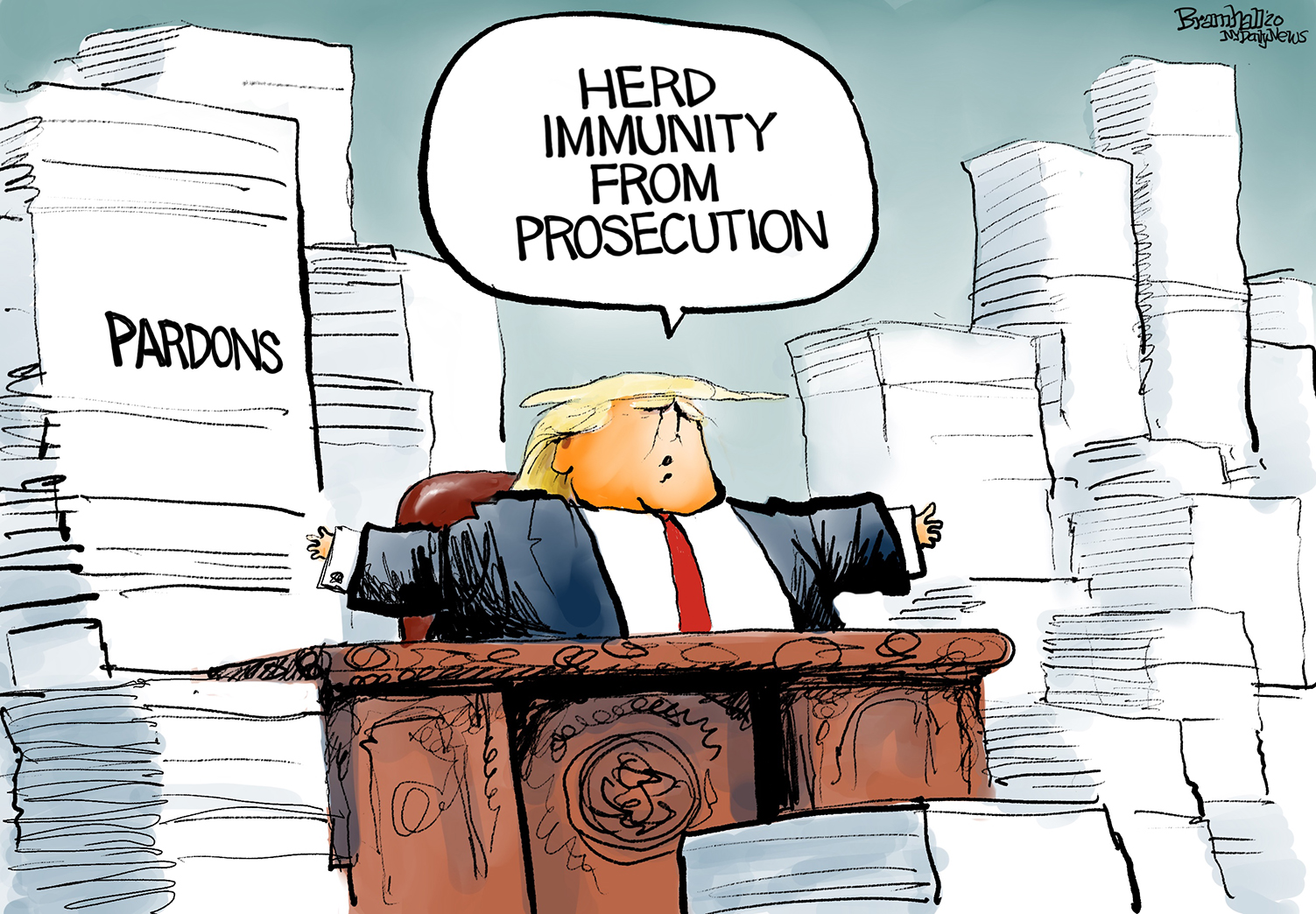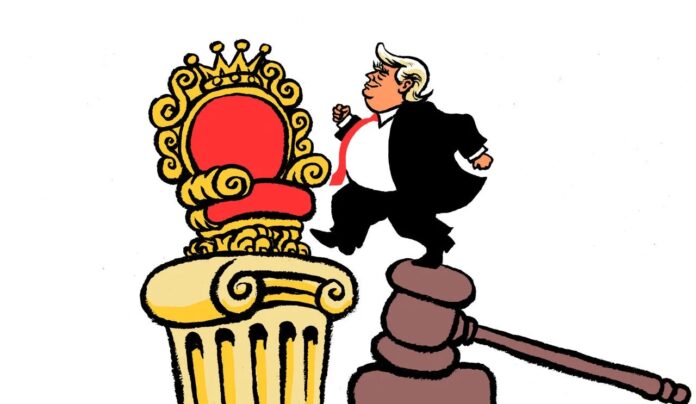Donald Trump’s victory in the 2024 presidential election brings significant legal implications for the criminal cases he faces. Returning to the Oval Office grants Trump a level of presidential immunity that could delay or even dismiss serious criminal charges against him. With four major cases looming, the dynamics of the U.S. legal system may shift, as Trump’s new status as president poses unique legal challenges and opportunities.
Presidential Immunity: A Shield Against Prosecution
With his election win, Donald Trump is set to regain presidential immunity, potentially shielding him from prosecution while in office. Over the last year, Trump faced four major criminal cases, both at the federal and state levels. However, his newly reinstated presidential privilege could put a hold on these charges until he leaves office or possibly dismiss them altogether. Presidential immunity is a powerful tool that can delay legal actions against a sitting president, allowing him to focus on his executive duties without the interference of ongoing prosecutions.

The precedent for presidential immunity was established to ensure that a president could perform his duties effectively. Boston College law professor Jeffrey Cohen stated, “A sitting president wouldn’t be forced to be incarcerated while they’re serving their presidency,” highlighting that any sentencing or legal action against Trump would likely be delayed until after his term. The judge overseeing Trump’s hushed-money trial is expected to rule on the immunity argument by November 12, with the potential to reshape the timeline of Trump’s legal battles.
The Hushed-Money Case: Delays in Sentencing
One of the most significant cases facing Donald Trump is related to the $130,000 payment to adult film star Stormy Daniels during the 2016 election. In May, a New York jury found Trump guilty on 34 felony counts for falsifying business records to cover up the payment, which was allegedly part of a scheme to influence the election by keeping scandalous stories hidden. The sentencing has been postponed until after the 2024 election, giving Trump time to potentially argue for immunity as the newly elected president.
This delay in sentencing is part of the broader legal strategy to leverage presidential immunity. According to Cohen, a sitting president cannot be incarcerated, meaning that any consequences of Trump’s actions will be postponed until he leaves office. The standard of presidential immunity, as established in July, gives a president protection from criminal charges related to official conduct during their time in office. If the judge rules in Trump’s favour, the charges may be significantly delayed or even dismissed.
Presidential Power Over the Justice Department
Trump’s new term as president also grants him considerable influence over the Justice Department (DOJ). Federal cases against him, including allegations of mishandling classified documents and his role in attempting to overturn the 2020 election, are particularly vulnerable to dismissal or indefinite delay. As president, Trump has the authority to halt federal prosecutions, a power that could allow him to withdraw the cases brought against him by Special Counsel Jack Smith.
Jack Smith has accused Trump of obstructing government efforts to retrieve classified documents retained at Mar-a-Lago. Additionally, charges related to election interference could face similar delays. As president, Trump can assert that these federal prosecutions are politically motivated, and use his executive power to influence or stop the cases altogether.
The Supreme Court and Presidential Immunity
The Supreme Court has not yet ruled on the boundaries of presidential immunity in cases like Trump’s. The DOJ’s own longstanding policy, however, states that prosecuting a sitting president could undermine the executive branch’s capacity to perform its constitutionally assigned functions. This policy implies that Trump’s federal cases may face prolonged delays, as any prosecution attempts must wait until his presidency ends.

The Georgia case, where Trump allegedly attempted to pressure officials to alter the outcome of the 2020 election, is similarly impacted by Trump’s return to power. The presiding judge, Scott McAfee, has already dismissed two charges due to jurisdictional issues, further complicating the legal process. The District Attorney, Fani Willis, has faced obstacles in pursuing this case, partly due to existing professional relationships with attorneys outside the state.
Can Donald Trump Pardon Himself?
One of the biggest questions that remain unanswered is whether Trump could attempt to pardon himself for federal offences. No American president has tried this before, and the legality of such an action is uncertain. During his first term, Trump had reportedly considered the possibility of self-pardoning, but it remains a controversial and legally untested move. If his reinstated DOJ decides to dismiss federal cases outright, the need for a self-pardon may become moot.

The issue of self-pardon raises significant political and judicial concerns, as it would challenge the limits of presidential power. While some legal scholars argue that a self-pardon is unconstitutional, others believe the president’s power to grant pardons is broad enough to include self-pardoning. However, even if Trump pursues this route, it is likely to spark intense debate and possible legal challenges in both lower courts and the Supreme Court.
The Impact of Trump’s Return on Legal Proceedings
Donald Trump’s return to the Oval Office following his 2024 election win has profound implications for the multiple criminal cases he faces. By regaining presidential immunity, Trump can significantly delay or potentially dismiss these charges. His position grants him an unparalleled opportunity to use executive privilege and influence the Justice Department, reshaping his ongoing legal battles. Whether through immunity, leveraging federal prosecutorial power, or a potential self-pardon, Trump’s legal strategy is now closely linked to his political power. The upcoming legal manoeuvres will likely set new precedents, pushing the boundaries of presidential authority and immunity in the United States.


